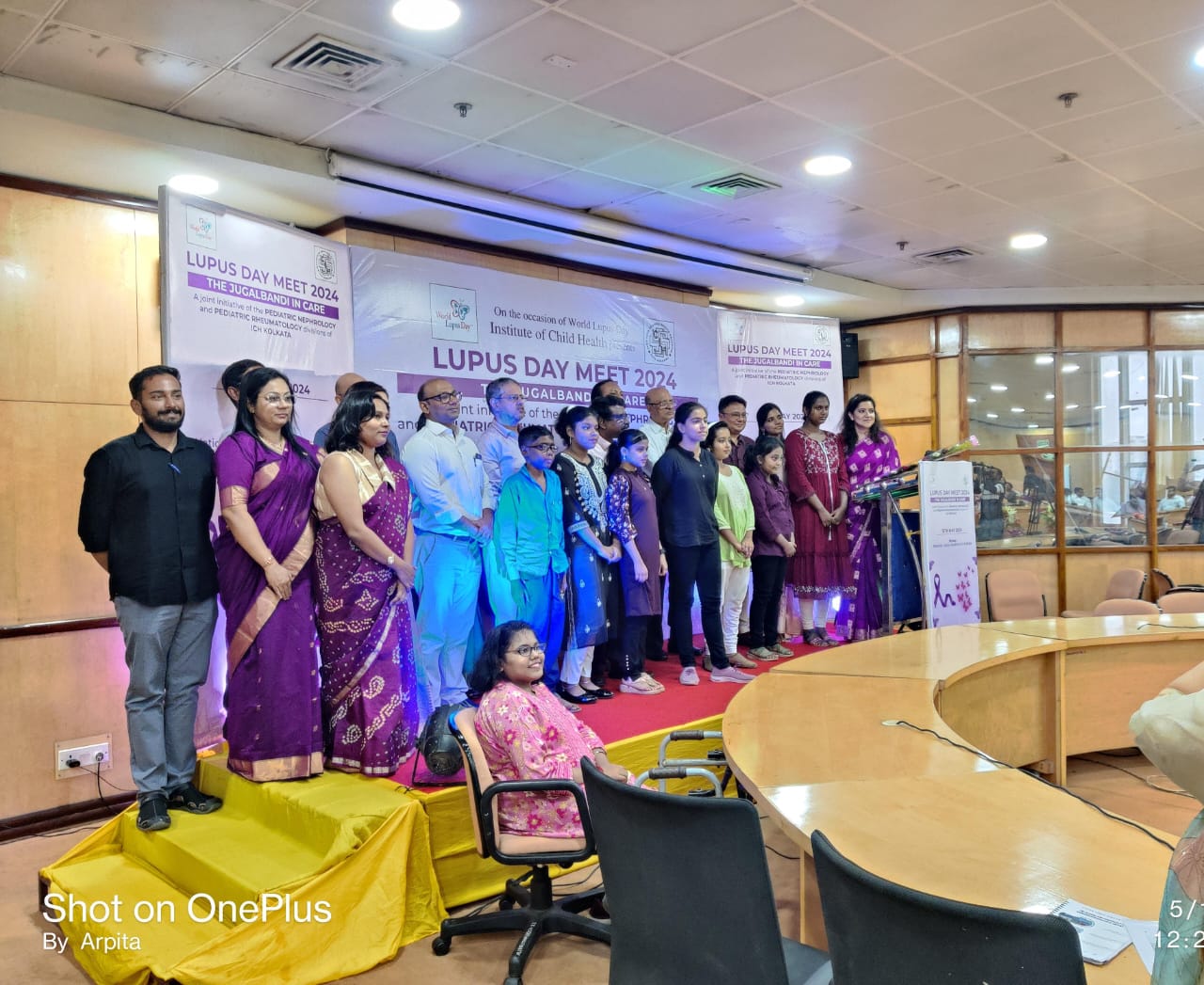Lupus is a chronic autoimmune disease that can affect children of all ages, though it’s more common in teenagers, especially around puberty.
In lupus, the immune system, the body’s defence system, mistakenly attacks healthy tissue. This can cause inflammation and a variety of symptoms throughout the body.
Children with lupus may experience a range of symptoms similar to those seen in adults with the condition. Lupus can affect all organs ranging from skin to almost all internal organ system. Kidney is among the most common important organ that is involved and can lead to serious shirt as well as long term consequences. Apart from kidney other important organs involved include brain, heart, joints and lung. Diagnosing lupus in children can be challenging because its symptoms can mimic those of other illnesses. Pediatric rheumatologists typically use a combination of medical history, physical examination, blood tests, and sometimes additional imaging or tissue biopsies to confirm the diagnosis.
Lupus is a chronic disease with often waxing waning course and hence children require ongoing medical monitoring and management to ensure that their condition is well-controlled and to detect any potential complications early. This typically involves regular visits to a paediatric rheumatologist as well as other specialists, as well as periodic blood tests and other assessments.
Lupus can have a significant impact on a child’s daily life, including school attendance, physical activity, and social interactions. It’s important for children with lupus to receive support from their families, schools, and healthcare providers to help them manage their condition and maintain a good quality of life.
Under the stewardship of Prof Rajiv Sinha (Paediatric Nephrologist) and Prof Priyankar Pal (Pediatric Rheumatologist) Institute of Child Health has been undertaking a joint Lupus Clinic for last 5 years and is also the nodal center for a pan India pediatric Lupus Nephritis registry. As data on pediatric Lupus Nephritis is scarce, particularly from developing countries the registry is expected to yield important information pertaining to this important disease. This will help the doctors in improved diagnosis and treatment, monitoring long term effects and future care.
10th May is World Lupus Day, and this is the World Lupus Month. On the occasion of World Lupus Day, we the doctors of Paediatric Nephrology and Paediatric Rheumatology from Institute of Child Health, Kolkata, have organized a scientific meeting on 12th May, 2024.In appreciation of our Lupus Warriors, a small program was conducted wherein they portrayed their stories.

